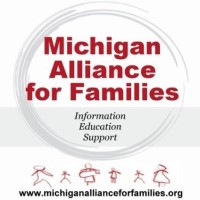PR from Governor Whitmer: For Complete Post, Click Here…
Whitmer’s State of the State Message Includes Proposal to Make $2.00 Hourly Wage Increase Permanent, Showing Value of Direct Care Worker Services.
Michigan Governor Gretchen Whitmer tonight unveiled a plan to make permanent a temporary $2.00/hour wage increase for Direct Care Workers, currently set to expire on Feb. 28.
Residential and vocational Direct Care Workers provide much-needed personal care, training, emotional support and respite to vulnerable people and their families.
“The Governor understands well what we’ve been saying for many months now—when this increase ultimately expires, our state’s historically-underpaid Direct Care Workers are going to take a huge financial hit,” said Sherri Boyd, executive director of The Arc—Michigan.
“The 100,000-plus families that rely on these workers for daily care will be left facing a critical gap in staffing and support if this temporary increase goes away four weeks from now, as it’s currently set to do.”
A strong coalition of organizations has come together to support the need for permanent changes to the way Michigan’s Direct Care Workers are supported.

 Join Michigan Alliance for Families for a two part “Behavior is Communication” virtual workshop with Dr. Sally Burton-Hoyle, Ed.D; Professor, ASD Area, Department of Special Education, College Supports Program Faculty Advisor. . Part 1- Friday, February 12 1pm-2pm Part 2- Friday, February 19 1pm-2pm A child’s problematic or inappropriate behavior is a sign that something is not right. The child needs support, not punishment. This workshop will help you determine what the child is saying with their behavior and how to substitute a more acceptable way to communicate that message. If you need an accommodation to attend this event, please send your request to info@michiganallianceforfamilies.org two weeks prior to the event.
Join Michigan Alliance for Families for a two part “Behavior is Communication” virtual workshop with Dr. Sally Burton-Hoyle, Ed.D; Professor, ASD Area, Department of Special Education, College Supports Program Faculty Advisor. . Part 1- Friday, February 12 1pm-2pm Part 2- Friday, February 19 1pm-2pm A child’s problematic or inappropriate behavior is a sign that something is not right. The child needs support, not punishment. This workshop will help you determine what the child is saying with their behavior and how to substitute a more acceptable way to communicate that message. If you need an accommodation to attend this event, please send your request to info@michiganallianceforfamilies.org two weeks prior to the event.